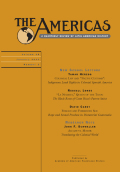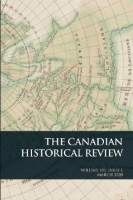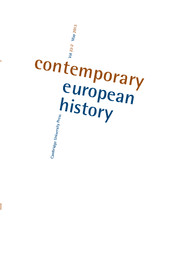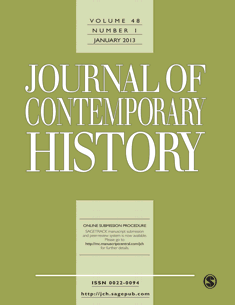
Tuna-Ajalookultuuri Ajakiri
Scope & Guideline
Unveiling Insights in Cultural History and Information Management
Introduction
Aims and Scopes
- Historical Narrative and Analysis:
The journal emphasizes the importance of detailed historical narratives, providing in-depth analyses of significant events, figures, and movements within Estonian history and broader Baltic contexts. - Cultural Heritage Studies:
A significant focus on the preservation and interpretation of cultural heritage, exploring the influence of historical events on contemporary cultural identities and practices. - Transnational Perspectives:
The journal frequently employs transnational approaches to examine historical connections between Estonia and other countries, highlighting the interplay of local and global historical processes. - Social and Political Histories:
Research often includes examinations of social structures, political movements, and their impacts on various communities, particularly in the context of Estonia's tumultuous history. - Archival Research and Documentation:
The journal encourages the use of archival materials and primary sources to provide authentic insights into historical events, thereby enhancing the academic rigor of its contributions.
Trending and Emerging
- Environmental and Ecological History:
Recent publications increasingly emphasize the historical relationship between humans and their environment, reflecting a growing interest in ecological history and its relevance to contemporary environmental issues. - Digital Humanities and Historical Methodologies:
There is a rising trend in utilizing digital tools and methodologies for historical research, indicating a shift towards more interdisciplinary approaches that merge technology with traditional historical analysis. - Postcolonial and Decolonial Perspectives:
Emerging themes include postcolonial studies that critically assess Estonia's historical narratives in the context of colonial and imperial legacies, suggesting a growing interest in decolonizing historical discourse. - Gender and Social History:
An increasing number of articles are exploring gender roles and the impact of social movements on historical developments, reflecting a broader trend towards inclusive historical narratives.
Declining or Waning
- Military History Focus:
Though military history has been a staple in earlier issues, recent publications show a shift towards more diverse themes, indicating a waning interest in solely military-focused narratives. - Soviet Era Studies:
The exploration of Soviet-era topics appears to be less frequent, suggesting a possible decline in interest as newer generations of researchers may prioritize contemporary issues or earlier historical periods. - Traditional Ethnographic Studies:
There seems to be a decreasing emphasis on traditional ethnographic studies, with fewer articles focusing on the cultural practices and social structures of specific ethnic groups within Estonia.
Similar Journals

Transylvanian Review
Illuminating Transylvania: Where History Meets Cultural StudiesTransylvanian Review is an esteemed academic journal published by the CENTER TRANSYLVANIAN STUDIES, focusing on the fields of cultural studies and history. Since its inception in 2008, this journal has been committed to exploring the historical and cultural dynamics of Transylvania and the broader region, contributing to the scholarly discourse on Eastern European studies. Although currently classified in the Q4 quartile of both cultural studies and history in 2023, it serves as a valuable resource for researchers, professionals, and students aiming to deepen their understanding of cultural intersections and historical narratives. With its commitment to interdisciplinary approaches and rigorous scholarship, Transylvanian Review plays an essential role in fostering dialogue and insight within the academic community, and it aims to continue expanding its influence through accessible and impactful articles. Based in Cluj-Napoca, Romania, it enriches the academic landscape with a unique focus on regional studies.

Cercles-Revista d Historia Cultural
Unveiling the past: a journey through cultural history.Cercles-Revista d Historia Cultural is a vital scholarly platform published by UNIV BARCELONA, SERVEI PUBLICACIONS, dedicated to advancing the field of cultural history through accessible research. With its Open Access model established in 1998, this journal encourages the wide dissemination of knowledge, providing a valuable resource for researchers, professionals, and students alike. Based in Barcelona, Spain, Cercles competes in the Q4 quartile rankings for both Cultural Studies and History as of 2023, and is significant within its niche, despite recent challenges reflected in its Scopus rankings and percentiles. The journal covers a spectrum of topics, promoting interdisciplinary dialogue and critical perspectives in cultural history. Aimed at fostering scholarly engagement, Cercles represents an important avenue for academic discourse and dissemination in the humanities.

Novyi Istoricheskii Vestnik-The New Historical Bulletin
Connecting Historians Through Diverse Narratives and Insights.Novyi Istoricheskii Vestnik - The New Historical Bulletin, published by IZDATEL STVO IPPOLITOVA, stands as a significant academic platform in the field of history, particularly within the Russian context. With an ISSN of 2072-9286 and established in 2012, this journal aims to foster rigorous scholarship and innovative research in historical studies, enhancing discourse amongst historians, researchers, and students alike. Although it currently holds a Q3 ranking in the Arts and Humanities - History category, its commitment to showcasing diverse historical narratives and promoting academic dialogue positions it as a noteworthy contributor to the field. The journal's scope covers a wide array of historical topics, encouraging submissions that illuminate various aspects of the past, whilst also serving as a vital resource for those seeking to understand contemporary historical discourse. As an open access journal, it promotes the accessibility of scholarly work, appealing to a broad audience intent on expanding their knowledge of history.

NEW ZEALAND JOURNAL OF HISTORY
Illuminating the Path of New Zealand's Historical JourneyThe New Zealand Journal of History is a preeminent scholarly publication dedicated to the field of historical research, focusing on the rich and diverse history of New Zealand from both national and global perspectives. Published by the University of Auckland, this journal serves as a vital platform for historians, researchers, and students to engage with novel ideas and scholarly discourse. Although it is not an open-access journal, its impact within the academic community is underscored by its consistent ranking within the Scopus database, where it holds the position of rank #681 out of 1328 in the Arts and Humanities category, reflecting a commendable percentile of 48th. Covering essential years of publication from 1978 to 2019, the journal offers a comprehensive archive of articles that explore various historical themes and methodologies. By providing a critical examination of New Zealand's past, the New Zealand Journal of History plays an essential role in inspiring further research and understanding of historical contexts, making it indispensable for historians and students alike.

AMERICAS
Connecting Histories, Cultures, and Perspectives.AMERICAS, published by CAMBRIDGE UNIVERSITY PRESS, is a prestigious academic journal dedicated to the interdisciplinary study of the Americas, encompassing a broad range of cultural and historical perspectives. With an ISSN of 0003-1615 and an E-ISSN of 1533-6247, this journal serves as a pivotal platform for scholars and researchers aiming to explore the complexities and nuances of life in the Americas. It holds a commendable impact factor with a notable classification in the Q3 category for Cultural Studies and Q2 for History as of 2023, ranking it at #571/1760 and #574/1304 in respective fields according to Scopus. This journal's effective convergence of diverse historical timelines, particularly from 1969 through 2024, showcases its enduring commitment to scholarship. While open access options are not available, the journal remains an invaluable resource for researchers, professionals, and students looking to deepen their understanding of the cultural and historical dynamics of the Americas, thus facilitating academic discourse and furthering knowledge in the field.

REVUE HISTORIQUE
Exploring Historical Narratives with Scholarly PrecisionREVUE HISTORIQUE is a distinguished scholarly journal dedicated to the field of history, published by PRESSES UNIV FRANCE. With an ISSN of 0035-3264 and an E-ISSN of 2104-3825, this journal has been a vital resource for historians and academics since its inception, exploring various dimensions of historical research and discourse. The journal is currently categorized in the Q3 quartile for history according to the 2023 metrics, highlighting its significance and academic rigor, although it is rated in the 19th percentile in the Scopus Ranks among Arts and Humanities journals. Based in France, the journal encompasses a wide range of historical topics and serves as a platform for innovative research, critical analysis, and scholarly discourse, making it an essential read for anyone looking to deepen their understanding of the past. Researchers, professionals, and students alike will benefit from its comprehensive articles, which reflect the latest trends and developments in historical research. As a non-open access journal, subscribers and institutional access are essential to engage with its rich content.

CANADIAN HISTORICAL REVIEW
Fostering Critical Discourse in History and Religion.The Canadian Historical Review serves as a premier scholarly journal dedicated to fostering research and discourse in the fields of history and religious studies, published by the esteemed University of Toronto Press. With an ISSN of 0008-3755 and an E-ISSN of 1710-1093, this journal has been a vital contributor to the academic landscape since its inception, continuing to provide a platform for innovative research and critical analysis from 1978 to the present. Recognized in the Q2 category for both History and Religious Studies in 2023, it ranks in the top tier of its field, positioning itself as an essential resource for scholars eager to explore diverse topics in Canadian history and beyond. While the journal does not currently operate under an Open Access model, it remains highly regarded for its rigorous peer-review process, ensuring the highest standards of academic integrity. The editorial board is committed to expanding the boundaries of historical inquiry, making it a cornerstone for researchers, professionals, and students alike who seek to deepen their understanding of the past.

Contemporary European History
Shaping Understanding of Recent Historical DynamicsContemporary European History is a leading academic journal dedicated to the exploration of significant historical events across Europe from 1992 to the present, published by Cambridge University Press. As a Q1 rated journal in the field of History, it boasts a robust impact factor, reflecting its high citation frequency and prominence among scholars. The journal serves as an essential platform for researchers, professionals, and students interested in contemporary issues and trends affecting Europe, promoting interdisciplinary dialogue and the exchange of ideas. With its commitment to high-quality scholarship, Contemporary European History provides insightful analyses that shape our understanding of recent historical dynamics, making it a vital resource for anyone looking to delve into the complexities of modern European history.

Revista Historia Autonoma
Empowering Scholars with Open Access to Historical InsightsRevista Historia Autonoma, a prominent journal in the field of autonomous historical studies, is published by the ASOC HISTORIA AUTONOMA based in Madrid, Spain. Since its inception in 2012, this Open Access journal has offered a platform for the dissemination of research that explores the diverse histories and cultural narratives within autonomous regions. The journal aims to foster scholarly dialogue and innovation by providing researchers, professionals, and students access to high-quality articles that illuminate lesser-known historical contexts. With its commitment to accessibility, Revista Historia Autonoma plays a crucial role in advancing the study of regional histories, making it an essential resource for those engaged in historical research and scholarship.

JOURNAL OF CONTEMPORARY HISTORY
Advancing Understanding of Contemporary Societal IssuesJOURNAL OF CONTEMPORARY HISTORY, published by SAGE PUBLICATIONS LTD, is a premier academic journal dedicated to the exploration of modern historical narratives and contemporary societal issues. Established in 1966, this journal has influenced scholarly discourse through a rich repository of research, analyses, and critical reflections, providing invaluable insights into cultural studies, sociology, and political science. With an impressive Q1 ranking in History and a notable Q2 ranking in Cultural Studies for 2023, it stands out in the academic community, ensuring rigorous peer-reviewed content that meets the highest scholarly standards. The journal is accessible through conventional subscriptions, reflecting its long-standing commitment to academic excellence. Based in the United Kingdom, it continues to serve as an indispensable resource for researchers, professionals, and students alike, bridging the gap between historical context and contemporary relevance.